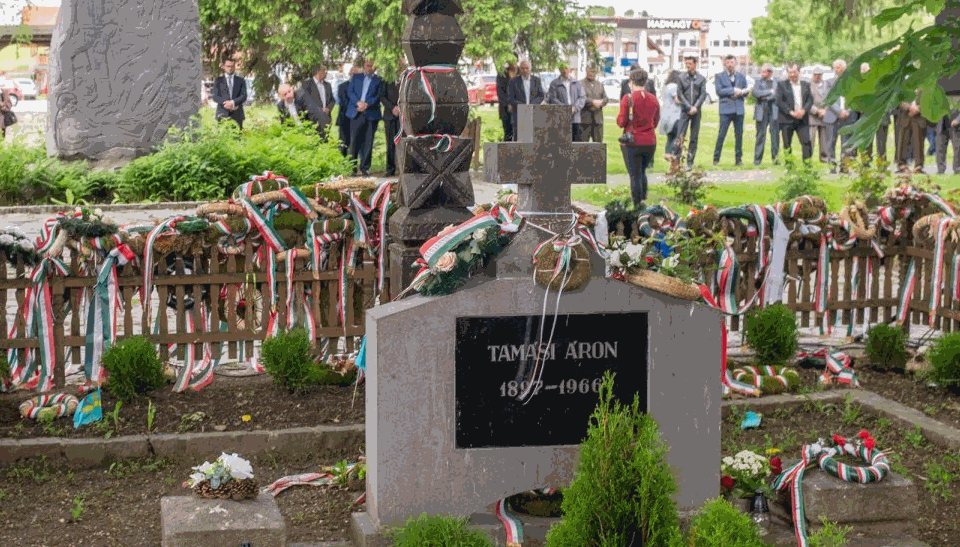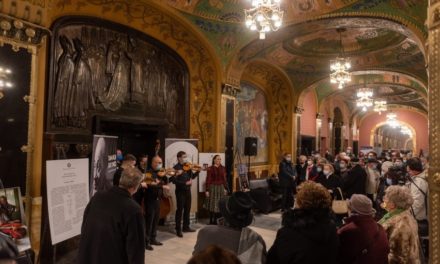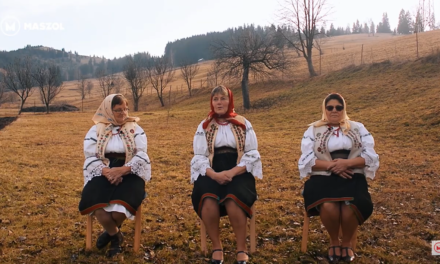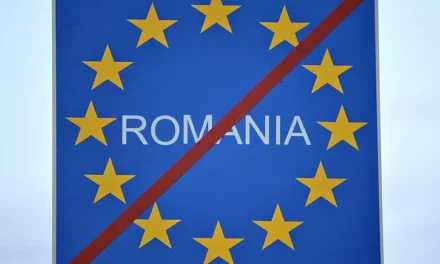Áron Tamási and the creators of the carved stone statue that preserves the writer's memory, Jenő Szervátiusz and Tibor Szervátiusz, were remembered on Sunday in Farkaslaka. The speakers revived the ideas of famous personalities that are still valid today.
The writer Áron Tamási was born 125 years ago in Farkaslaka, and although he traveled the world during his life, his body still found eternal rest in his native land - recalled Hadnagy Jolán, president of the Tamási Áron Cultural Association. As he said, the artist was always proud of his origin, and his native land usually appeared in his works. His remains were brought back to Farkaslaka in 1966 according to his last will, and the one-year creation of the monument commemorating him and his writings - the carving of a huge stone block from the Madarasi Hargita - was started in 1971 by the sculptors Jenő Servátiusz and his son, Tibor Servátiusz. "Áron Tamási served and serves his people with his writings, and the Servatiuses engraved it in stone and wood and are doing the same. May God rest them, their souls are still here among us," stated Lieutenant Jolán. Traditions, history Ákos Bence Lukács, the chief consul of the Consulate General of Hungary in Csíkszereda, stated that Farkaslaka is an exceptional, almost mythical place from the point of view of Hungarian culture, as it is the birthplace of Áron Tamási. According to him, the passing time has not dimmed, but highlighted the significance of the writer's life and work.
Reviving the memory of the Szervátiusz sculptors, he pointed out that three soul brothers met figuratively on the spot, who consciously took on the fate of the Transylvanian Hungarian minority artists, the expression of folk life. All three found with their hearts the values of their smaller country and the characteristics of its vocabulary. (…) In their works, the mythical world of Hungarian folk history, tradition and folk spirit comes to life, cast in a modern form," he said.
He emphasized that Tamási assigned a valid task to his contemporaries, which is none other than loyalty to the ancient land, glorious traditions, vocation to the Hungarian task and work for the Hungarian nation. The consul emphasized that the lives and works of the three artists should be a moral and spiritual standard for all people who take their Hungarianness seriously. After the speeches, those present laid wreaths on the grave of Áron Tamási and the Servátius monument. Finally, a photo exhibition from the collection of Klára Servátiusz opened in the faith classroom of the Catholic parish. The mayor of Farkaslak, Lehel Kovács, and Nagy Miklós Kund, curator of the Szervátiusz Foundation, gave speeches at the event.
Source: Székelyhon.ro
Author: Fülöp-Székely Botond
Picture: László Beliczay













